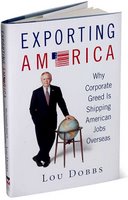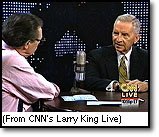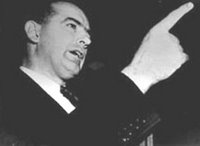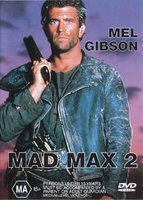
I'm reading Lou Dobbs' book, Exporting America: Why Corporate Greed is Shipping American Jobs Overseas, and I think the book really speaks to members of our generation. By 2015, 3.4 million white collar jobs will be outsourced and not just manufacturing jobs (Dobbs 34). He makes some very compelling arguments about how businesses have forsaken their responsibility to the communities in which they've thrived for years and years, pulling up stake and heading off to SE Asia or down South across the border. There are going to be fewer and fewer jobs available that cannot be outsourced in the future, especially when you have CEOs like former chairwoman of Hewlett-Packard Carly Fiorina callously saying what other CEOs were thinking:
"No American has a God-given right to a job."
Yeah, the last time I checked, a job wasn't one of the three natural rights nor inalienable rights either. Is a job a civil right? I hesitate to say yes because I fear what that would mean to the government's national debt. But, on the other hand, I grew up in the Detroit area, a place known for being a bit of union town. My family has worked for the Big Three in the past. No one should have the right to make a living taken away from them. Nor should that means to making a living be a crappy one - the New Deal saw to that. For the past twenty five years or so, both Democrats and Republicans have danced the deregulation dance. Influenced by lobbyists, seen as a way to "improve competition and lower prices for the consumer" (I made up the quote so don't quote me), we end up with Clear Channel owning 10% of all the radio stations, tons of billboards and concert halls with which they can effectively freeze out any musical act that doesn't kiss their ass. We also end up with billions in the scam of the savings and loan fiasco in the early 1990s. Enron was also the beneficiary of energy deregulation; need I say more? In the end, the consumer gets screwed by footing the bill.
I digress. When companies layoff workers, they "are essentially firing their customers" (Dobbs 19). Not only that, between the exploding national debt and the monstrously unbalanced trade deficit, we're now over 3 trillion in hock to foreign countries like Japan and China. Thank God these countries keep investing in U.S., otherwise if they pull a Indonesia a la 1997 when the investors yanked all of their money out of that country and sent their currency crashing, we're screwed. The U.S. bailed SE Asia out back then to prevent a global meltdown. I doubt China or the EU could do the same for us if that happened today. That "giant sucking sound" that Ross Perot mentioned is money being sucked out of the U.S. into those other countries that we are now indebted to. In an effort to become more competitive (outsourcing), we are becoming less competitive because we'll be hamstrung by such a huge debt. And please tell me debt doesn't matter. Tell that to members of Gen X and the Millenials who are maxed out on their credi
 t cards and can't get out from under their bills. Household debt, national debt. It all matters.
t cards and can't get out from under their bills. Household debt, national debt. It all matters.The reason all Americans should be for fair trade, not free trade, is that it makes America less competitive in the long run, though it might look like a short term gain. And, I really never understood why those folks protested the G8 summits and WTO meetings until now - I'm sure there's more I'm missing besides just the jobs thing. It probably has to do more with the poor workers in the other countries and environmental laws and all that. But, I'm sorry, I'm going to focus here on Americans and how are jobs are disappearing first before I worry about somebody else in another country.
I'll add more on this later as I finish the book. Go out and buy it.




 Senator McCarthy had everyone looking under the bed for Commies in the 1950s; there were blacklists, arrests subpoenas, firings, etc. As for the economy, NY Times columnist and economist Paul Krugman has said that we've been in the middle of a jobless recovery. I think it's safe to say that with high oil prices left over from last year's hurricane season and saber rattling with Iran that threatens more inflation, another recession might be on the horizon. But again, this economic slowdown is nothing new for the American people. We're not sailing on uncharted waters here. Oil prices shot up after Iraq's invasion of Kuwait in the summer of 1990 helping trigger a recession, and previously, America's support of Israel in the Yom Kippur War in 1973 led to an embargo (and rising oil prices) in the mid 70s which led to scary inflationary times. There was a recession from 1979-82. Both recessions also had a slow recovery time also. So, we've been down this road before.
Senator McCarthy had everyone looking under the bed for Commies in the 1950s; there were blacklists, arrests subpoenas, firings, etc. As for the economy, NY Times columnist and economist Paul Krugman has said that we've been in the middle of a jobless recovery. I think it's safe to say that with high oil prices left over from last year's hurricane season and saber rattling with Iran that threatens more inflation, another recession might be on the horizon. But again, this economic slowdown is nothing new for the American people. We're not sailing on uncharted waters here. Oil prices shot up after Iraq's invasion of Kuwait in the summer of 1990 helping trigger a recession, and previously, America's support of Israel in the Yom Kippur War in 1973 led to an embargo (and rising oil prices) in the mid 70s which led to scary inflationary times. There was a recession from 1979-82. Both recessions also had a slow recovery time also. So, we've been down this road before.



